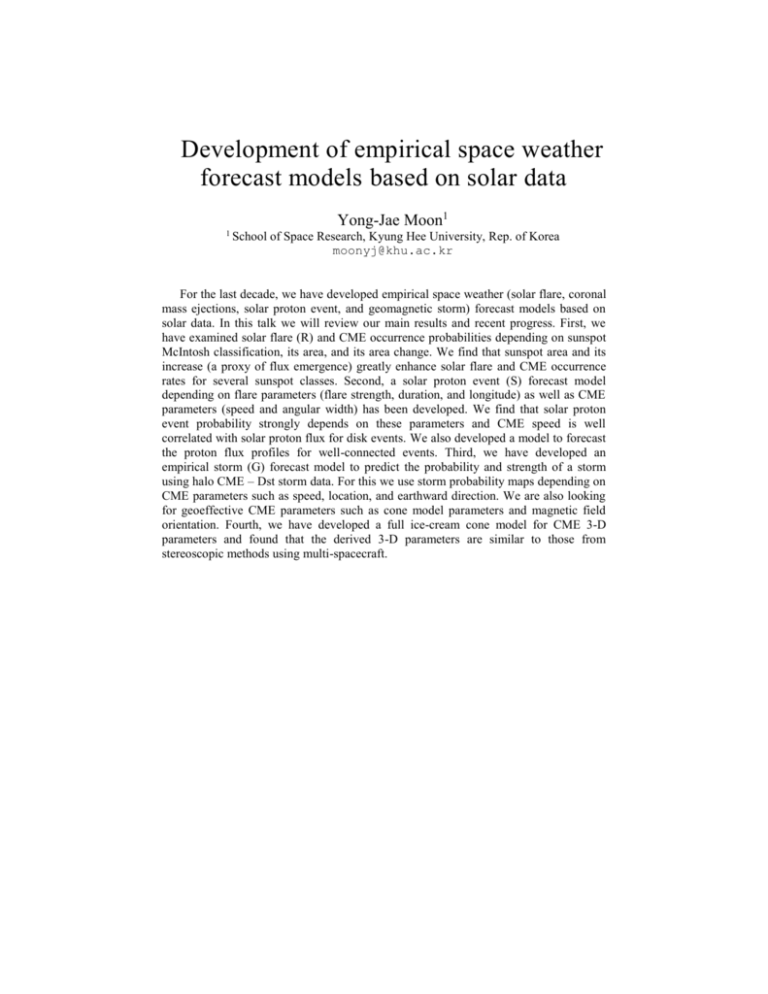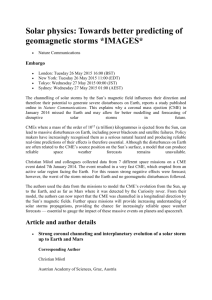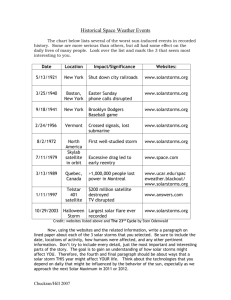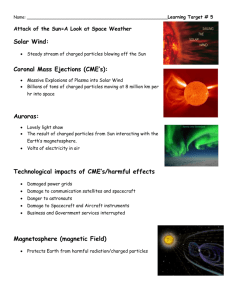Development of empirical space weather forecast models based on
advertisement

Development of empirical space weather forecast models based on solar data Yong-Jae Moon1 1 School of Space Research, Kyung Hee University, Rep. of Korea moonyj@khu.ac.kr For the last decade, we have developed empirical space weather (solar flare, coronal mass ejections, solar proton event, and geomagnetic storm) forecast models based on solar data. In this talk we will review our main results and recent progress. First, we have examined solar flare (R) and CME occurrence probabilities depending on sunspot McIntosh classification, its area, and its area change. We find that sunspot area and its increase (a proxy of flux emergence) greatly enhance solar flare and CME occurrence rates for several sunspot classes. Second, a solar proton event (S) forecast model depending on flare parameters (flare strength, duration, and longitude) as well as CME parameters (speed and angular width) has been developed. We find that solar proton event probability strongly depends on these parameters and CME speed is well correlated with solar proton flux for disk events. We also developed a model to forecast the proton flux profiles for well-connected events. Third, we have developed an empirical storm (G) forecast model to predict the probability and strength of a storm using halo CME – Dst storm data. For this we use storm probability maps depending on CME parameters such as speed, location, and earthward direction. We are also looking for geoeffective CME parameters such as cone model parameters and magnetic field orientation. Fourth, we have developed a full ice-cream cone model for CME 3-D parameters and found that the derived 3-D parameters are similar to those from stereoscopic methods using multi-spacecraft.








